Endocrinology and Hormones
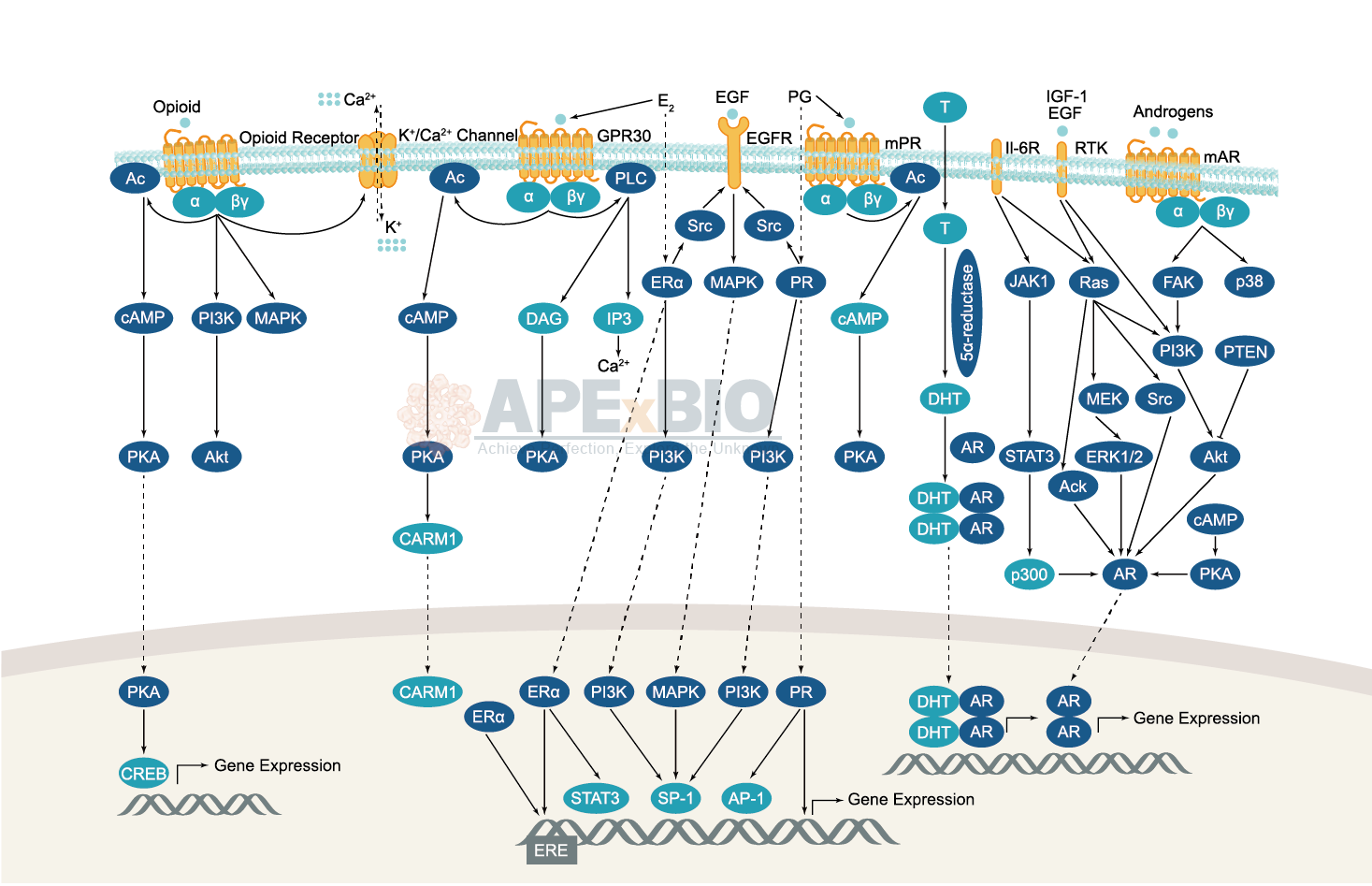
There are three types of hormones based on their chemical composition: Amines (e.g. dopamine, adrenalin and noradrenalin); Steroids (e.g. estrogen, testosterone and glucocorticoids); Peptides (e.g. the peptide hormones insulin, ghrelin and vasopressin). Peptide hormones produced by secretory nervous tissue are known as neuropeptides. For example, thyroid hormone plays important parts in development, homeostasis and metabolism, while cortisol is essential for growth, nutrient supply and immune function. Moreover, the regulation of blood glucose involves several pancreatic peptide insulin and its counter regulatory hormone, glucagon, as well as cortisol, growth hormone and epinephrine.
Dysregulations in endocrine system are implicated in diseases such as Acromegaly, Cushing Syndrome, Diabetes, Dwarfism, Graves Disease, Hermaphroditism, Delayed and Precocious Puberty and Thyroid Diseases.
-
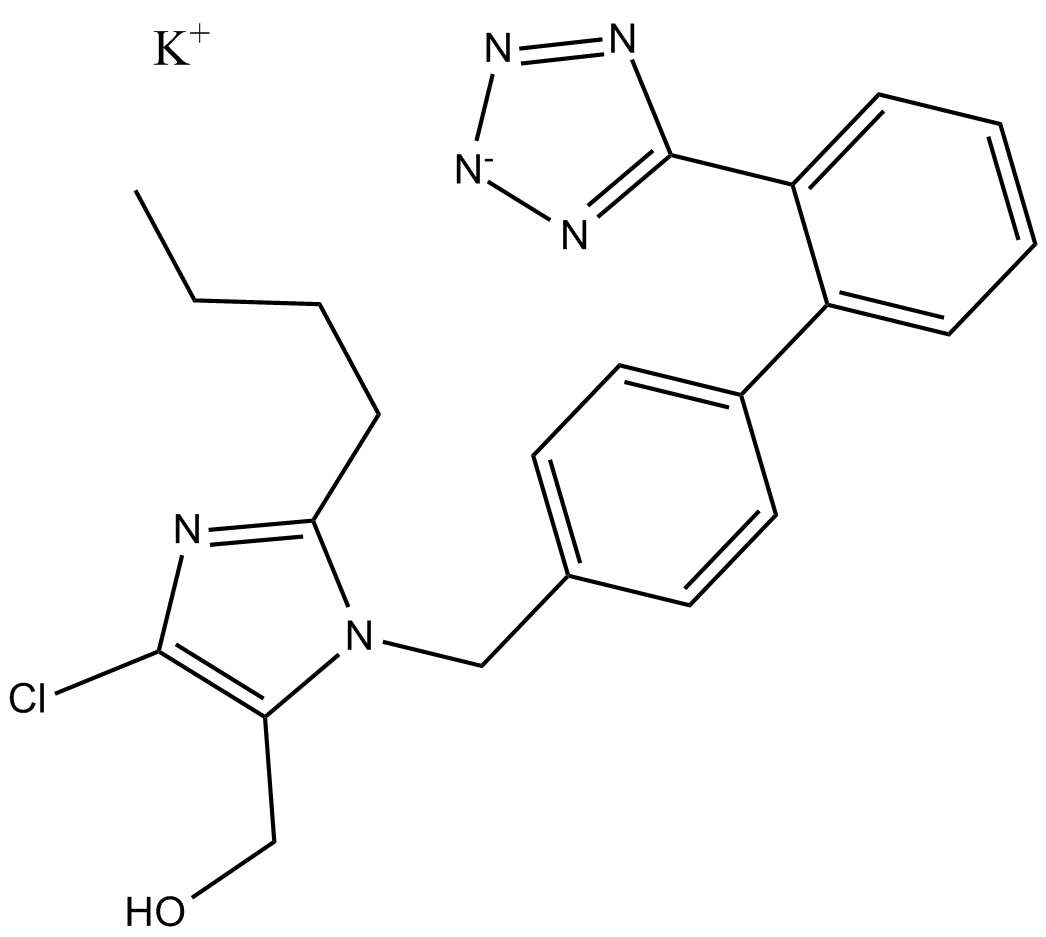 A1425 Losartan Potassium (DuP 753)Summary: Angiotensin AT1 receptor antagonist
A1425 Losartan Potassium (DuP 753)Summary: Angiotensin AT1 receptor antagonist -
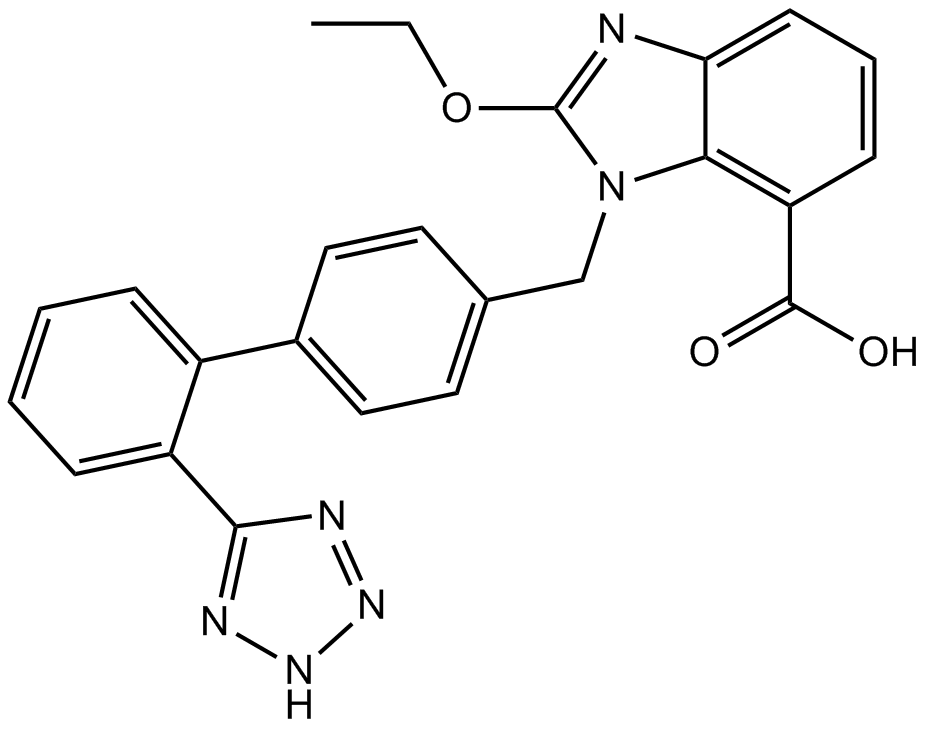 A5932 CandesartanSummary: Angiotensin II receptor 1 (AT1) antagonist
A5932 CandesartanSummary: Angiotensin II receptor 1 (AT1) antagonist -
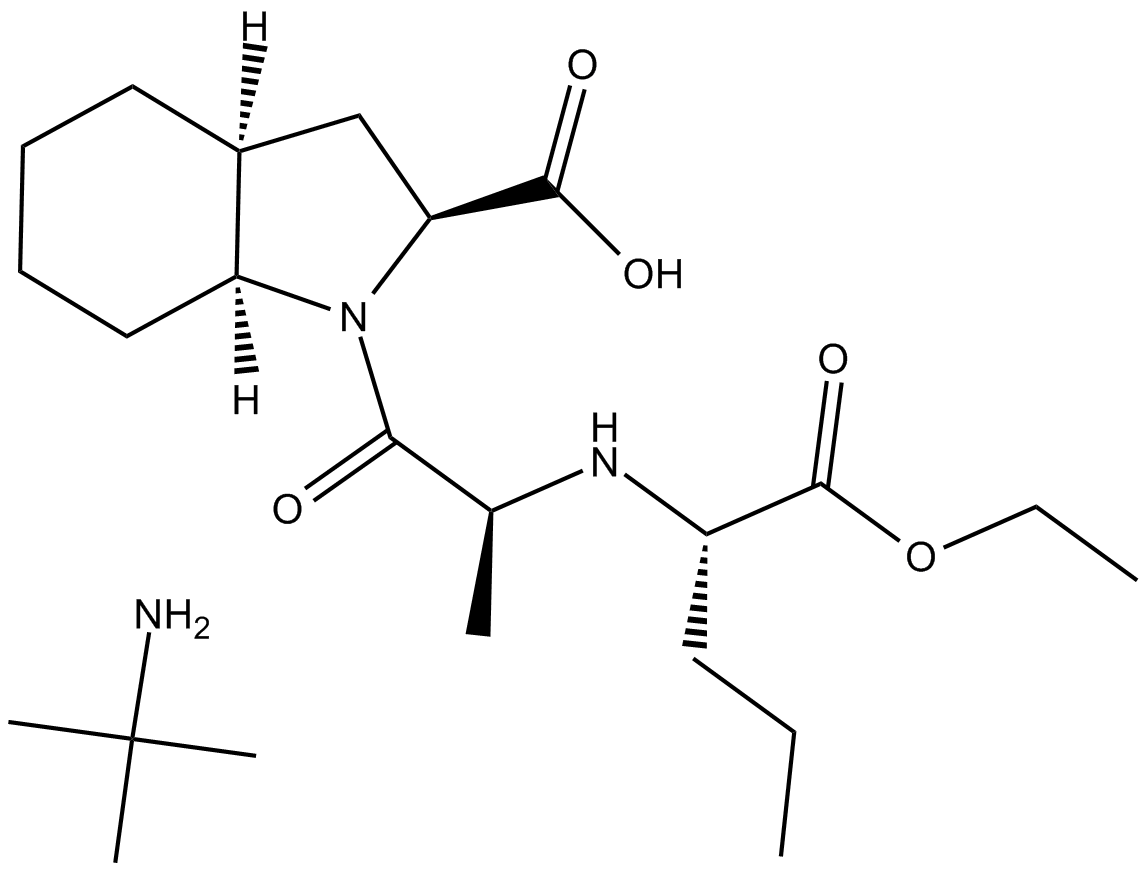 A8019 Perindopril ErbumineTarget: Angiotensin-Converting Enzymes (ACEs)Summary: ACE inhibitor
A8019 Perindopril ErbumineTarget: Angiotensin-Converting Enzymes (ACEs)Summary: ACE inhibitor -
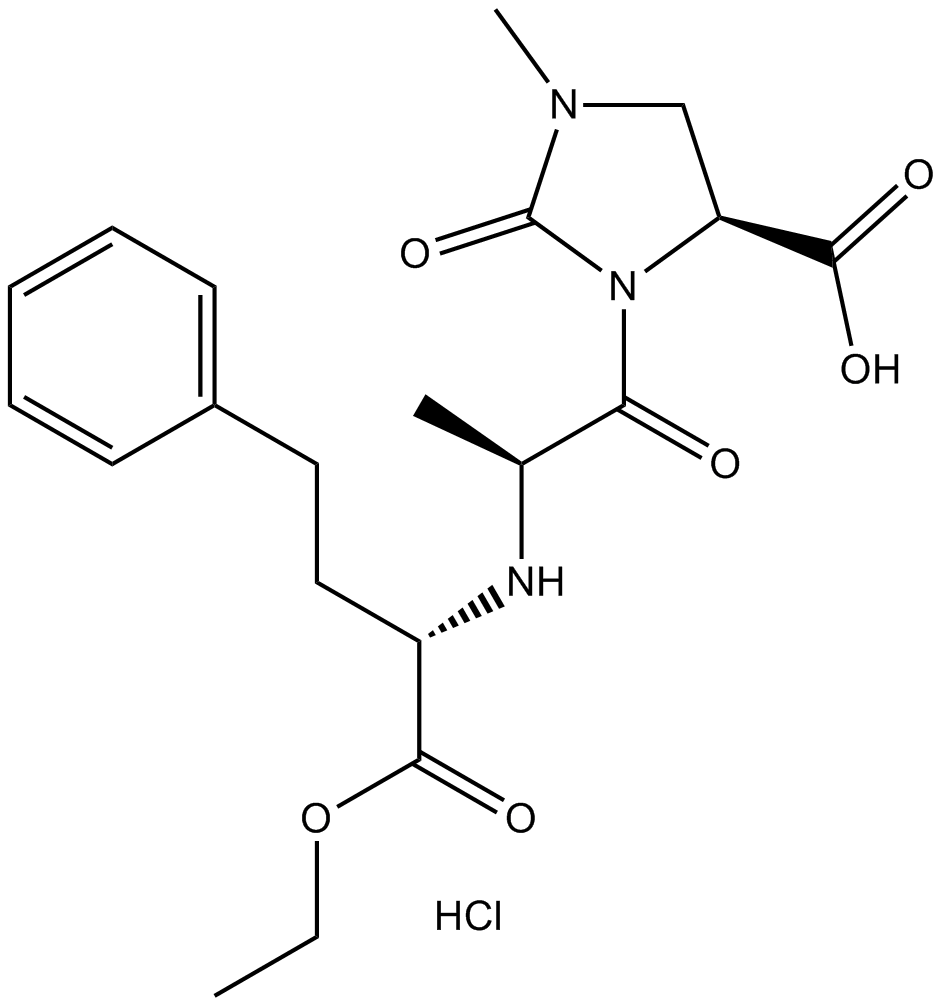 A8447 Imidapril HClTarget: ACESummary: RAAS inhibitor
A8447 Imidapril HClTarget: ACESummary: RAAS inhibitor -
 A8518 Rosuvastatin CalciumSummary: HMG-CoA reductase inhibitor
A8518 Rosuvastatin CalciumSummary: HMG-CoA reductase inhibitor -
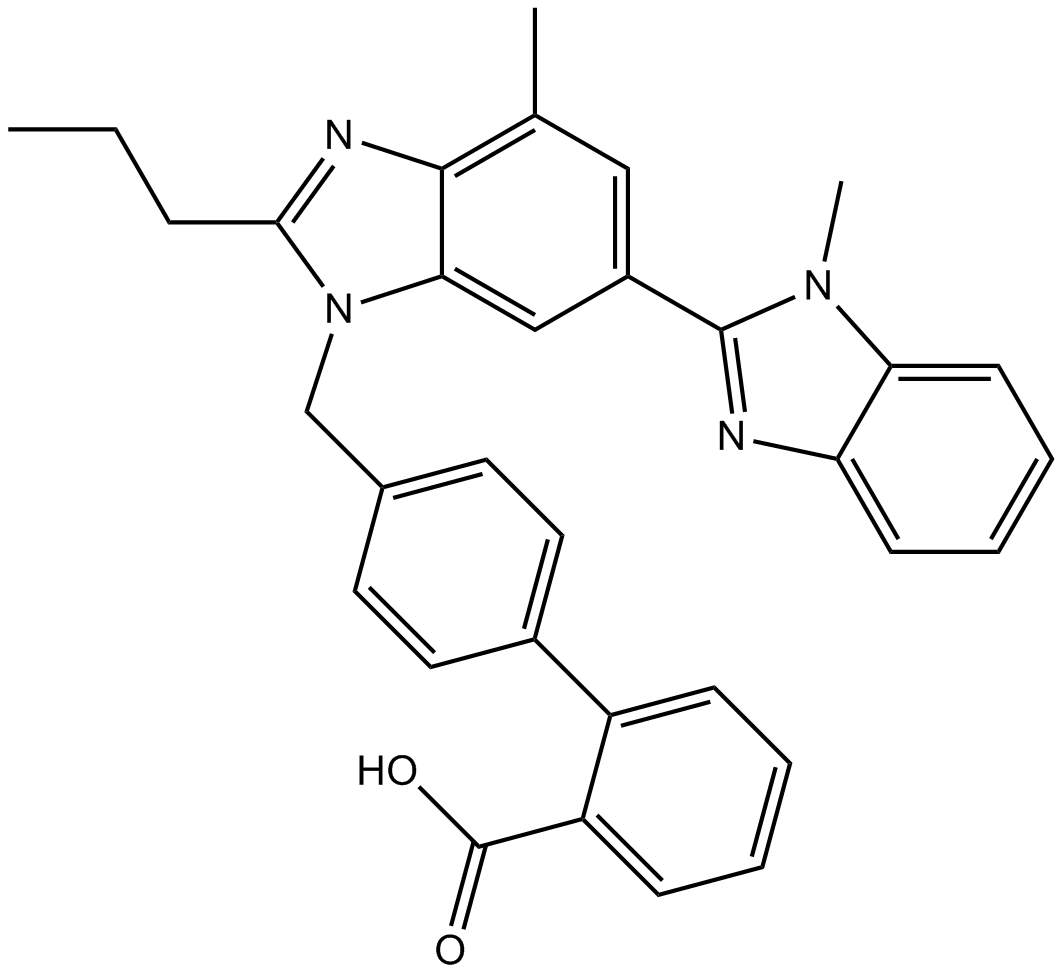 A8531 TelmisattanSummary: Angiotensin II receptor antagonist
A8531 TelmisattanSummary: Angiotensin II receptor antagonist -
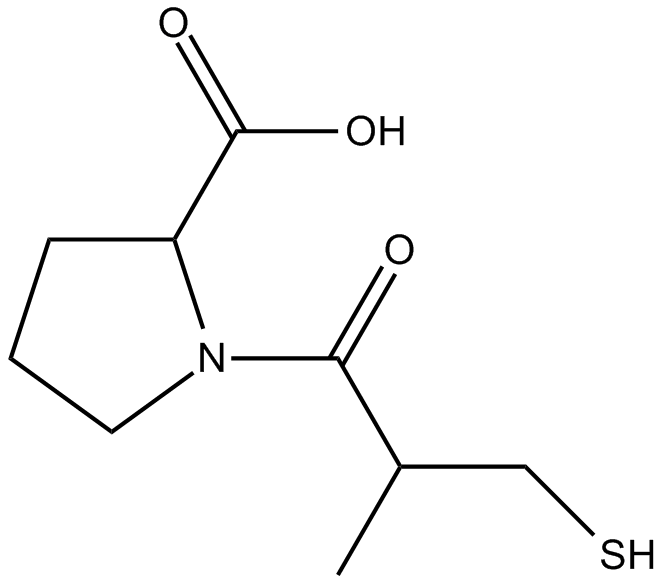 A4078 CaptoprilSummary: ACE inhibitor
A4078 CaptoprilSummary: ACE inhibitor

